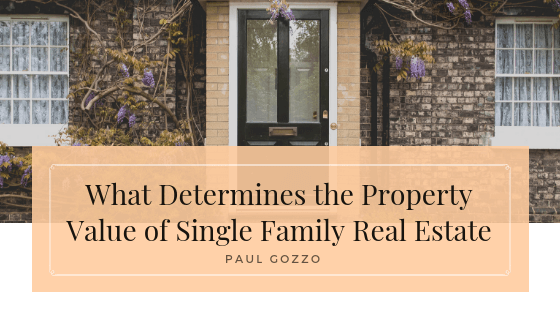When considering buying, selling or investing in a rental property, the single most important factor to keep in mind is how to properly value the property. Many novice buyers and sellers tend to get lazy about the valuation process, relying on what prices are given through services like the MLS or Zillow and while those can be helpful, it is more of a collaborative process using many data points that will help to create a better understanding of the units current and potential value.
In the modern real estate market, which often features homes that are unrealistically priced as well as many, such as short sales and foreclosures, that simply have no price associated with them at all, understanding how to skillfully assign a value to any prospective property ranks among the most basic and important skills that one can have, especially a speculator. Here are a few basic factors that affect the price of real estate property.
Location
Everyone knows some version of the saying that location is king. This turns out to be largely correct. The single most important factor in the valuation of a property is that property’s location. Two homes that are nearly identical in size and appointments can sell for radically different prices, depending on where they are. This is illustrated by looking at suburbs in the San Jose, California, area and then comparing with very similar-looking suburbs in a place like Toledo, Ohio. It’s easy to find housing stock that is almost identical in every respect between those two locations. But the homes in San Jose will often be priced $1 million or higher than their Toledo counterparts. On a broader comparison scale, it is location and location alone that accounts for this major difference, but this location theme often can get extremely granular such as the location on a particular street of say middle unit vs. corner lot.
Square Footage
The second most important factor in assigning a value to a property is the raw amount of square footage. But this category can be tricky. Even within the same neighborhood, the additional square footage does not necessarily add value to the home. All things being equal, additional square footage should add additional value, but there are other considerations that can quickly take precedent. For example, the number of bedrooms and bathrooms is, by and large, the more important factor in assigning a value to a home. Homes with even an additional half bath may see a premium that would be equivalent to hundreds or more additional square feet. Also, the size of the lot.
Other Amenities
Additional amenities, such as pools, saunas, hot tubs, and pole barns, can add value. But in other cases, they can actually detract from the value of the home. If you are not an expert appraiser, it is a very good idea to get an expert opinion on the value of any property with unusual amenities rather than just assuming that they add value.
Recent Sales Comps
One of the most powerful tools in the current value of a property, especially in the SFR asset class, is the recently sold units in close proximity to the one you are looking to purchase. This is one per foot, and bed/bath counts can help you quickly assess at a higher level before digging deeper.
Vintage
If you are going to plan to rent the unit as a single family rental (SFR) then one of the biggest factors to consider in completing your due diligence is the age of the home as in, when was it built? This is extremely important when you are considering the future maintenance you will have. For example, a house built in 1972 will potentially have more issues that need to be attended to and fixed costing you the investor, money, as opposed to a unit built in 2002 where the deferred maintenance should be a lot less.

